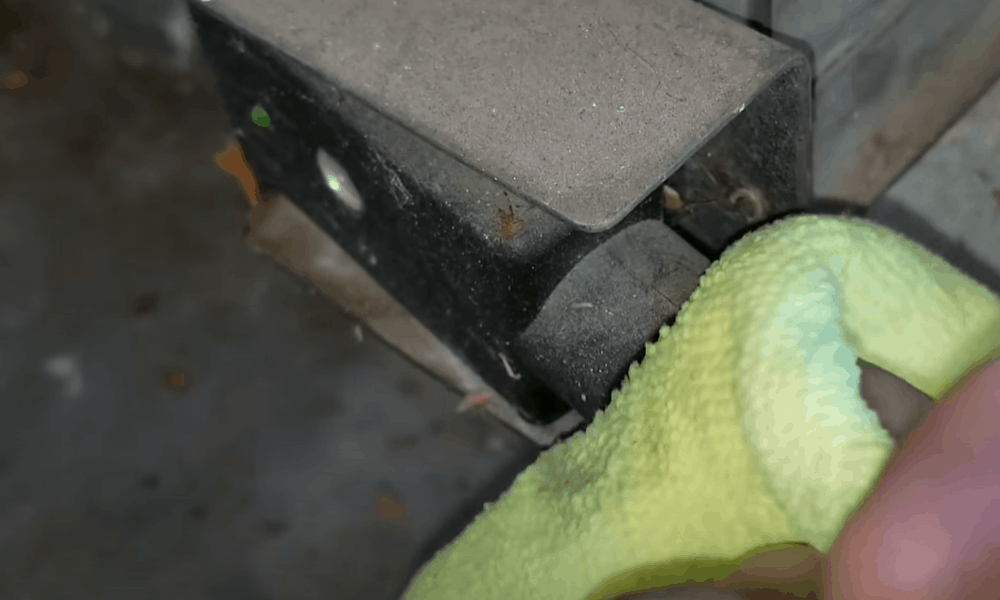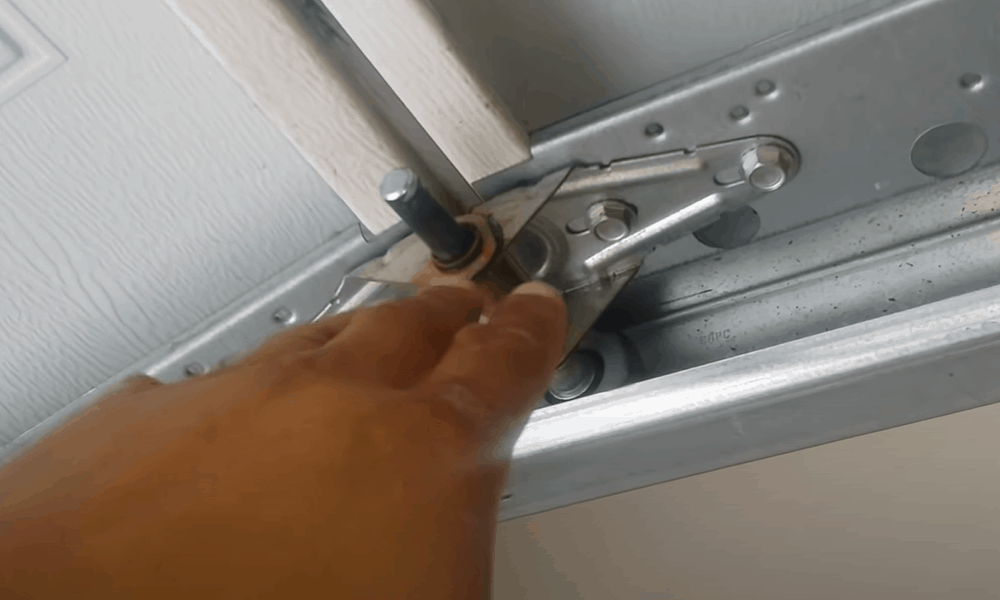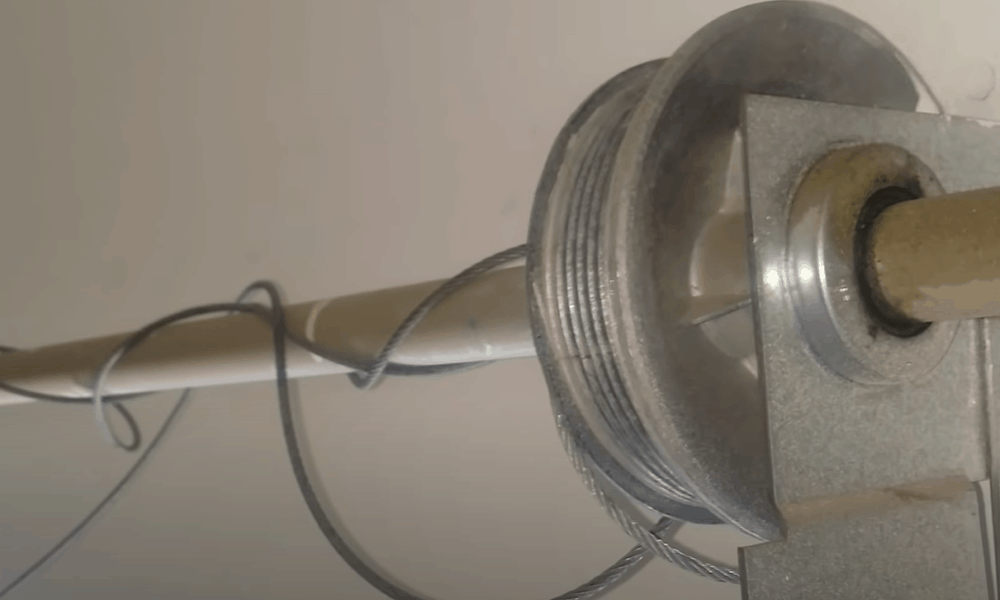Garage Door Not Close but Close With Continuous Press
There are many reasons the garage door won't close. Believe it or not, such a situation may include the tiny insect nest settled in the photo-eye sensor, the door thrown out of the track by the ball, or complicated mechanical problem.
Some of them you can solve yourself, but some issues require professional intervention. I will list here the most common reasons you should look for when your garage doors get stuck.
Reasons Why Garage Doors Won't Close
1. Faulty safety sensors
The next thing you should check is a pair of sensors placed at the bottom of the garage door, about 6 inches (15 cm) above the ground. The function of these safety devices is to send a signal to stop the door from closing when something or someone is in its way, including your child or pet.
If they stop receiving power, these sensors won't be able to emit the signal adequately. As a result, your garage door will fail to close. It is also possible than these photo-eyes send a continuous blinking signal to the garage door that an obstacle is in the way. It occurs when sensors are out of alignment.
2. Dirty sensors

Photo-eyes are very small, and you can see them placed on both sides of the garage door. Over time, these tiny devices get dirty and dusty. In that case, the signal between the two photo-eyes is disturbed, and your garage door can't close properly.
Solve the problem by taking a soft cloth and non-abrasive agent to clean them thoroughly. Be careful since the glass surface of this device is similar to the one on the camera. So, you can easily scratch and damage them. If they still don't work correctly, you should call the service to look for the problem.
3. The Limit Setting Adjustment
As soon as you buy a new garage door, it can close but immediately opens instead of staying closed. In such a case, you should check the limit settings of your garage door opener.
The limit set on the garage door defines how far the door needs to move to close entirely. That means it will open right away after closing if not set correctly. That usually happens when the door closes faster than the setting allows.
Also, the limit range determines how far the door needs to move before closes filly, so you should adjust settings. If they are too high, the door can't hit the ground because the opener has wrongly noticed that the door has hit something. As a result, it will reverse automatically to prevent an accident.
You will probably need some time and a few tries to solve the problem on your own. Look at the instruction manual, take the ladder, and look for the limit settings knob on the garage door motor.
The motor is always marked with arrows, but the labels can vary depending on the door model. Never overdo the adjustment to either side to avoid the door to slam to the ground or rise quickly and damage.
4. Dead transmitter battery
To work correctly, the garage door transmitters need an adequate level of power from batteries. So, once the batteries die, the transmitter will stop sending a signal to the door.
The first thing to do in such a situation is to check if the transmitter can still open and close the garage door. If yes, you need to replace the battery. Remove it and take care to line up its plus and minus signs with the same signs on the inside of the transmitter.
5. The tracks are not aligned

You can face a severe issue when the garage door tracks are out of alignment. The door can't run over the metal track if they are not precisely parallel. So, once you spot bent rails or gaps between the rail and rollers, you should call a professional for help.
6. Damage to the tracks
The most common reason for such a case is the heavyweight door. After a while, you can see that your garage door tracks are damaged, bent, blocked, or warped, which prevent the door from closing. You can solve the blockage by removing the obstacle.
If you don't solve other problems on time, the condition of the tracks will worsen and become dangerous. It is sometimes possible to repair them, but you will probably need to install new garage door tracks. So, you should call a professional to replace the old tracks when they lose regular shape.
7. Transmitters don't work correctly
The most common reason for transmitters to stop working is that you are out of range of the garage door. Therefore, you should find a distance from which you can still close the door.
When you are in range, but the door refuses to close, you should check the antenna. Move all possible obstructions that can hide the antenna and prevent receiving the signal. Additionally, look for possible damage and call the technician to replace it if necessary.
There is one more issue you should consider. If your neighbor has the same transmitter frequency, you will have a problem with closing your door. In such a case, you should change the frequency of your garage door. Finally, you may need to reprogram the remote.
8. Enabled disconnect switch
If the garage door motor starts running, but your door doesn't close, the disconnect switch is probably enabled. That switch always comes with the garage door opener to allow closing the door manually in case there is no power.
If someone unhooks it accidentally, the door will lose the connection with the motor. So, you need to re-attach it to allow the door to function regularly.
9. Broken tension springs or cables

Your garage doors need tension springs and cables to close slowly and safely. Once the springs break, your door will close extremely fast with a loud bang when it hits the ground. It is a dangerous situation because someone or something can be under it.
In such a case, you should call a professional to solve the problem, mainly because it is very likely that the cables will also break quickly because of increased pressure on them. Keep in mind that snapped cables fly fast and can hurt someone. Regular inspection of any damage to the cables will prevent severe consequences.
10. Obstacles
There is a possibility that your garage door can't close even though everything is fine. The reason is trivial and includes an obstruction in the door's path. Once your garage door starts closing but stops and starts reopening, you should look for a thing that blocks it.
It doesn't need to be a large object, so you should look for a small rock, debris, dirt, or even tiny toy. The only thing you should do is to clean the buildup of grime and remove rock or toy. The problem is solved!
What to Do When the Garage Door Doesn't Work
Scan the situation
When you face any issue with your garage door that won't close, the first step you need to take is to assess the situation. Visually check what is wrong, and if something blocks the safety sensors, or some toy or rock got stuck under the door. Once you determine what the problem is, you need to decide what to do to solve it.
Fix the problem on your own
Some of the existing problems you can successfully fix on your own. For instance, you can clean sensors or remove obstacles blocking their regular functioning.
The situation is entirely different when it comes to mechanical failures. In such a case, you should always keep in mind that you can damage the garage door while trying to fix something without fully understanding the system of the door functioning.
Safety box or board test
Contemporary garage doors have a safety feature designed to react and open immediately when someone or something is placed under them. It is an excellent way to prevent hurting kids or pets when walking there accidentally.
When your door won't close appropriately, and you suspect something is wrong with this system, you should check the safety feature with the simple box or board test. Adjust the limit on your garage door and then put a box under it. Another option is to lay a board on the ground.
Then, you should try to close your garage door. If it reacts and starts opening before reaching the box or board, there is no reason for worry. Otherwise, your garage door is a potential danger, and you need to fix it to keep your family safe.
Call a professional
You should leave some issues to the professionals, especially if you are not an expert for mechanics.
For example, when you have a problem with tightly wound overhead torsion springs under the high tension, you may hurt yourself or someone else after making even a small estimation error. In such a case, a highly skillful and reliable expert will help you solve the problem safely and efficiently.
Source: https://www.wcmanet.org/garage-door-opener-troubleshooting/
0 Response to "Garage Door Not Close but Close With Continuous Press"
Post a Comment